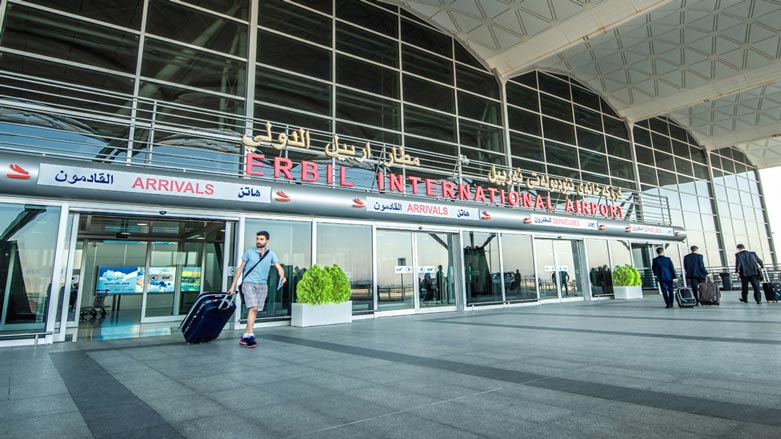Baghdad imposed flight ban to harm stability, economy of Kurdistan: KRG

ERBIL, Kurdistan Region (Kurdistan 24) – The international flight ban is unconstitutional and was imposed to harm the stability and economy of the Kurdistan Region, a recent report by the Kurdistan Regional Government’s (KRG) Ministry of Interior said.
In its first report of the New Year, the KRG’s Ministry of Interior Joint Crisis Coordination Centre (JCC) outlined the impact Baghdad’s flight embargo has had on Kurdistan, especially regarding humanitarian aid for displaced persons and refugees.
On Sep. 29, 2017, the Iraqi government enforced an international flight ban on the Region’s two airports in Erbil and Sulaimani as punishment for a democratically-held independence referendum a few days earlier.
“The evident aim of the flight embargo imposed by the Federal Government [of Iraq] on the Kurdistan Region is political rather than constitutional,” the JCC report read.
“The move is [meant] to collapse the stability and to harm the economy of the Region by isolating it from the rest of the world,” the report added.
The JCC also pointed to the Iraqi government’s “disregard for the consequences of the flight ban” on the people of Kurdistan including the 1.5 million Internally Displaced Persons (IDPs) and refugees hosted by the KRG.

Since the embargo, over 1,500 flights have been canceled at the Erbil and Sulaimani airports with an estimated 20,000 foreign workers affected.
“The airports in the Kurdistan Region offered a valuable sense of security and freedom for national and international travelers,” the JCC report continued. “They transformed the Kurdistan Region into a safe gateway into and out of Iraq.”
Additionally, about 1,300 injured Peshmerga forces, instrumental in the defeat of the Islamic State (IS), are unable to travel abroad for needed medical attention.
The flight ban has also reduced access to quality healthcare and medicine for locals as well as IDPs and refugees in the Kurdistan Region.

Tensions between the KRG and the Iraqi government have considerably increased following Kurdistan’s Sep. 25, 2017, independence referendum.
The historic vote received widespread support for secession from Iraq, but Baghdad refused to recognize the results and instead responded by imposing collective punitive measures against Kurdistan, including the flight ban and use of military force in disputed areas.
The KRG has shown its flexibility, offering to freeze the results of the referendum, but Baghdad demands a full annulment as well as the handover of airports and border crossings as a precondition for the start of negotiations.
Last month, the Iraqi government announced the extension of the flight ban for another two months.
“The flight ban is solely a collective punishment by [Baghdad] against the people of the Kurdistan Region for having exercised their democratic right to express their voices and opinion,” the report concluded.
